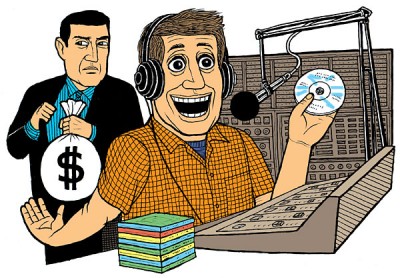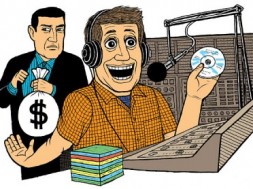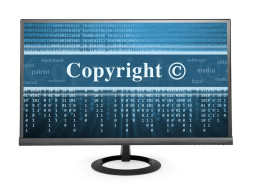
While payola is an oft-debated topic, the Broadcasting Commission’s stance on the issue has always been quite clear. The Jamaica Reggae Industry Association has hypothesized that 4 out of 5 of the leading radio stations in Jamaica practice payola – with startling implications for the quality of music that is broadcast on the airwaves, the ability for new musicians to have their music heard, and inevitably, the future of Jamaica’s music industry. And this is just pay-for-play on the radio, and with regards to music. Payola in its simplest form refers to the practice of “paying bribes for commercial advantage” – a practice which can also take place on television, for example in news broadcasts. This article speaks about the proliferation of payola among major media houses, who have been criticized for the alleged amounts paid for access to interviews and photographs. Evidently, payola is a global issue that affects all types of media.
Currently, the Broadcasting Commission has submitted a series of recommendations on payola’s criminalization and its associated penalties – including fines of up to J$5 million – to the government, which have been included on the legislative agenda for this year. But how is payola dealt with by governing bodies and commissions across the world?
The Communications Act and the rules of the FCC, the United States’ Federal Communications Commission, requires that broadcasters can receive money, services or other valuable considerations for airing particular programme matter – but that this must be disclosed before it is broadcast. If a breach is made, the FCC investigates the matter and refers it to the Department of Justice if further action is required. Just as we do, therefore, the FCC recognizes that payola can have a significant impact on the quality of programming – and that the public has a right to know when and where the practice of payola has taken place. On the other hand, however, these US laws in theory do not prevent broadcasters from receiving bribes from those who are able to offer them – they simply ensure that these broadcasters disclose when bribes are received. This means that wealthier musicians or organizations are still placed at an advantage – and it is this advantage with which the Broadcasting Commission of Jamaica disagrees.
n the UK, the practice of pay for play on TV and radio is illegal. Ofcom, the independent regulator for the UK communication industries, stipulates clearly in clause 10.5 of its broadcasting code that “No commercial arrangement that involves payment, or the provision of some other valuable consideration, to the broadcaster may influence the selection of rotation of music for broadcast.” Additionally, for television content, all sponsors must be clearly stated, and sponsorship deals cannot affect editorial content.
In Trinidad and Tobago, there exists a Telecommunications Authority which is responsible for enforcing the policies and regulations made under the Telecommunications Act. In an article published in 2011, the Telecommunications Authority admitted that there is “no known law or regulation in relation to the issue [of payola].”
Certainly, the Broadcasting Commission’s work shows a commitment to balancing the interests of broadcasters, consumers and content-creators in Jamaica. The Commission’s zero-tolerance policy distinguishes us from many of our counterparts across the Caribbean and across the world. While payola for many is a tricky subject, for us it is a rather straightforward one. We believe that it is harmful, and are currently taking the necessary steps to ensure that it is criminalized.
What are your views on payola? Share with us by commenting below.
(158)







